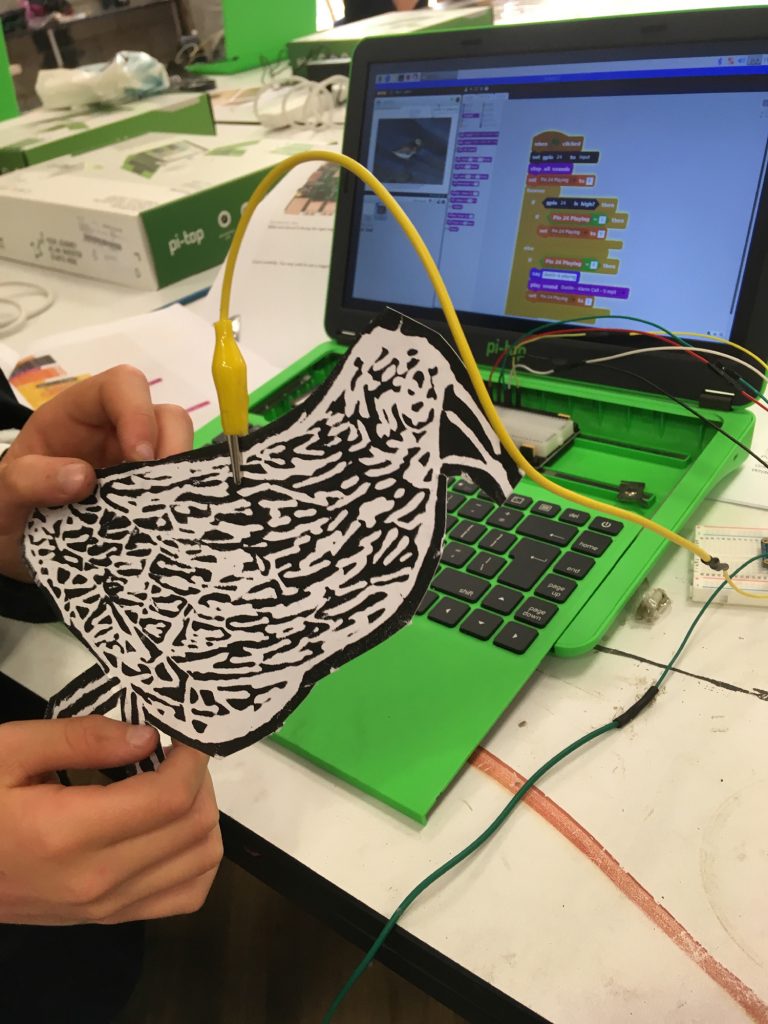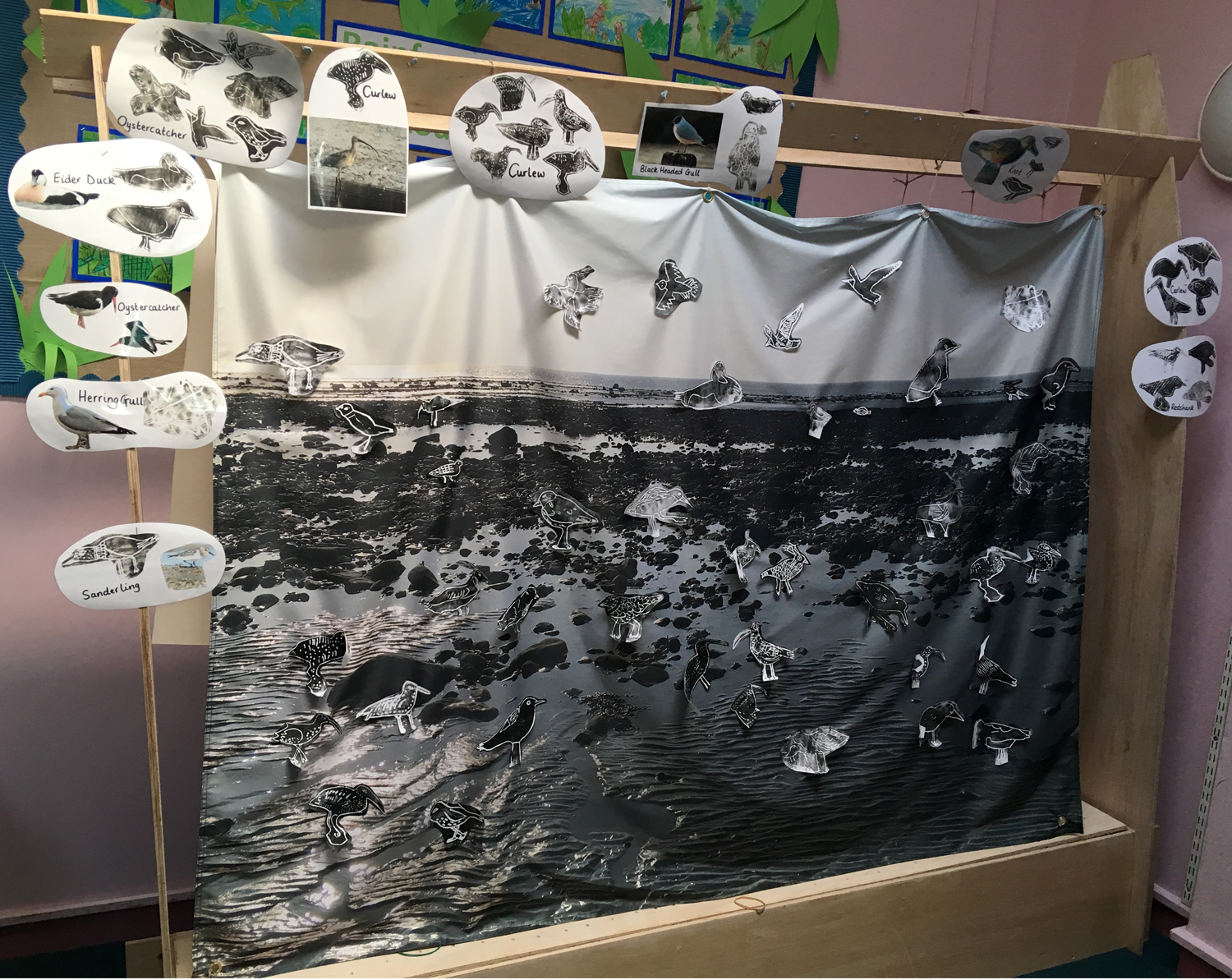The Project
The Lost Sounds is about encouraging people to pay attention to the natural environment through sound. It invites people to explore their local area and tune into the rhythm of the seasons and the wildlife around them.
The project combines lots of activities, including;
-
- a guided nature walk,
- fieldwork,
- drawing birds and making prints using conductive ink,
- recording and editing audio of bird calls,
- making a circuit and programming it.
All of these activities build towards making a display of audio prints that when touched play the sounds of birds. The aim is to use digital tools and skills to stimulate observation, listening and attention to the non-human world.

Over recent decades the number of amateur naturalists has declined. The project is about rekindling lost naturalist skills, like recognising bird calls, as well as drawing attention to the decline of particular species.
The Lost Sounds began in Morecambe Bay, which is one of the most significant sites in the UK for breeding birds. The project has been developed by the Ensemble team at Lancaster University. It was inspired by the power of The Lost Words book by Robert Macfarlane and Jackie Morris and by several conversations noting the changing soundscape of the area, including the loss of corncrakes and the decline of curlew.
The Lost Sounds activities can be delivered in a variety of community settings as well as schools. The video above and the photo below shows bird prints of curlew, lapwing, ringed plovers and more made by primary school children at West End Primary School, Morecambe.
The interactive prints produced through the project are exhibited to share with others. A fabric print is made for each location and the prints are attached and wired up to create an interactive soundscape. The video and image below are from Quernmore Primary School and West End Primary School, Morecambe.

This project is part of an EPSRC Senior Fellowship programme [Grant number: EP/P002285/1) that is exploring digital technologies and environmental change. The pilot project was funded by a Lancaster University Science and Technology Outreach Grant, match-funded by Computing at Schools. Recently the project was awarded funding from the ESRC Impact Acceleration Account to extend the work. The application was supported by the Eden Project, the National Trust and RSPB.
For more information contact Liz.Edwards at lancaster.ac.uk






































1 thought on “The Project”
Comments are closed.